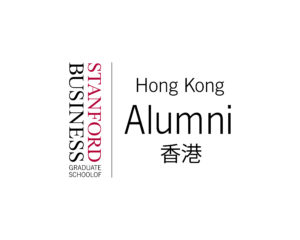Searching for Int’L Unicorns
Stanford Speaks: Prof. Stephen J. Ciesinski,
Lecturer, Stanford GSB,
President, SRI International (originally founded as the Stanford Research Institute)
Breakfast, Wednesday 23 March 2016, 07:45-9:45 am, China Club
Local Menu Challenges for “Silicon Valley Hot Sauce”
and the difference between disruptive innovation and simple fads
Event Details:
The Stanford GSB Chapter of Hong Kong is pleased to invite you breakfast and conversation with Steve Ciesinksi, Lecturer in Entrepreneurship at the Stanford Graduate School of Business and, at SRI (the Stanford Research Institute International), President, Head of Global Partnerships & Member of the Strategy, New Venture & Technology Committees.
“Everyone wants to be the next Silicon Valley”… so why doesn’t it happen more often?
Why has China produced start-up “unicorns” but Europe has barely managed to do so? Why has Japan, the world’s third largest economy, never done so? Is anything going on in Latin America, the Mideast or Africa? In this breakfast discussion, Steve will exchange views with the Stanford GSB Community on the particular challenges of investors and entrepreneurs in innovation and entrepreneurship both outside the USA and, in particular, in the emerging markets.
Can a smaller market – a Singapore – credibly compete regionally/globally, or must it follow the Israeli model of close integration with Silicon Valley to succeed? Why do some int’l entrepreneurial hubs seem to do better at innovation – Israel – and others at emulation – Bangalore? Are local deep capital markets always necessary if there is access to US providers – again, Israel as an example – and how much can government support help or hinder financing gaps (the Singapore and now discussed possible Hong Kong model)? How much can a Hong Kong credibly aspire to develop an ecosystem of innovation and start-ups or do certain factors limit it, in the end, to a complementary role to an adjacent China, at best? What makes, even within China, certain innovation ecosystems achieve scale and critical mass – Shenzhen, Hangzhou – while others – Tianjin, Qingdao – miss out? Why do some “mentored eco-systems” – again, Shenzhen with Tencent and Hangzhou with Alibaba – create hubs of entrepreneurship, while others – Korea – as often crowd out innovation as mentor it? Do you need a large home market to succeed – China – or can a small market country successfully export innovation to the world – Israel, Korea, Taiwan? What role does rule of law play? Are there other “rules’ or norms that apply? How important is the emerging economy cost advantage when technology innovation is being discussed? How do local research, development and engineering (“RD&E”) schools fit into the preceding and how much educational scale is “enough scale”?
The Stanford GSB Chapter of HK could not be more pleased to have Steve share his insights and exchange views with our community on the challenges faced, and the potential rewards at reach for investors and entrepreneurs in innovation outside of the traditional Silicon Valley ecosystem.
Speaker’s Bio: STEPHEN J. CIESINSKI
Stephen Ciesinski is President of Silicon-Valley based SRI International (www.sri.com) where he also serves as Head of Global Partnerships & Member of the Strategy, New Venture & Technology Committees. He is also a Lecturer at Stanford’s Graduate School of Business where he teaches Creating High Potential Ventures in Developing Economies.
SRI, founded in 1946 by Stanford University and independent since 1970 is, in turn, one of the tech industry’s pioneering strategy consultancies, a non-profit focused on applying research breakthroughs to large-scale commercial applications and is the company that introduced, for example, both Apple’s Siri and the computer mouse to the world and received the first message sent on Arpanet (the internet’s predecessor).
Prior to joining SRI in 2007, Steve held senior positions with Laszlo Systems (CEO & Board Member), a pioneer in Web 2.0 software; Resumix, Inc. (CEO & Chairman), the inventor of Web-based personnel recruiting applications; Octel Communications (EVP), a worldwide leader in voice-messaging products; and with Applied Materials (General Manager), a global manufacturer of semiconductor capital equipment. He began his career at Procter & Gamble, was a consultant with Booz, Allen & Hamilton, and is a past Venture Partner with Earlybird Ventures. He remains an active international angel investor, and regularly assists private companies and VC firms as an advisor and board member.
Steve is past Chairman of the Board of Trustees for Union College (and lifetime trustee) as well as past chairman of The President’s Cabinet at California Polytechnic State University (Cal Poly). He is a member of the Yosemite Conservancy Council and is founder, along with his wife and sons, of the Kalele Foundation, dedicated to providing character and self-esteem development experiences for disadvantaged children.
He is a graduate of Union College with a double major in Electrical Engineering and Modern Languages, and received an MBA from Stanford University.

